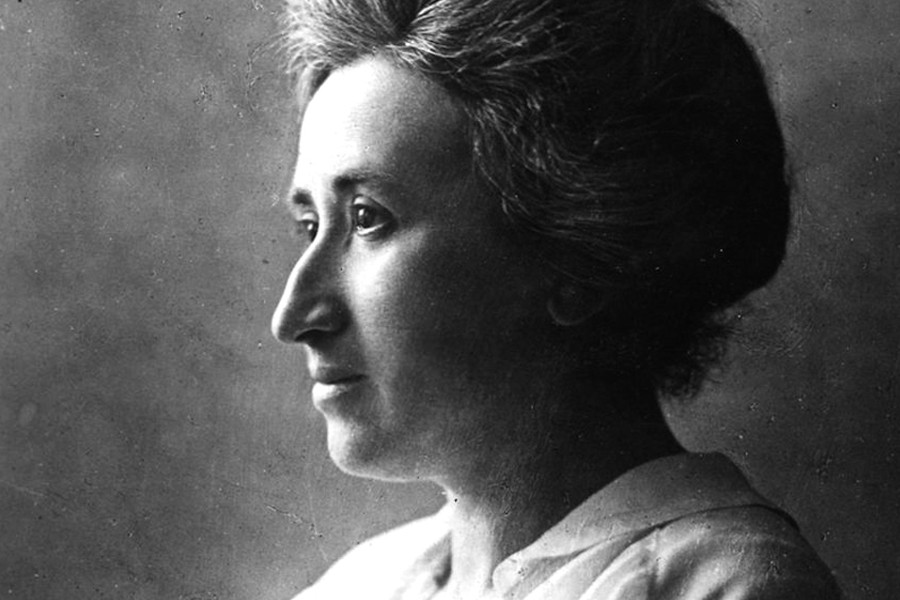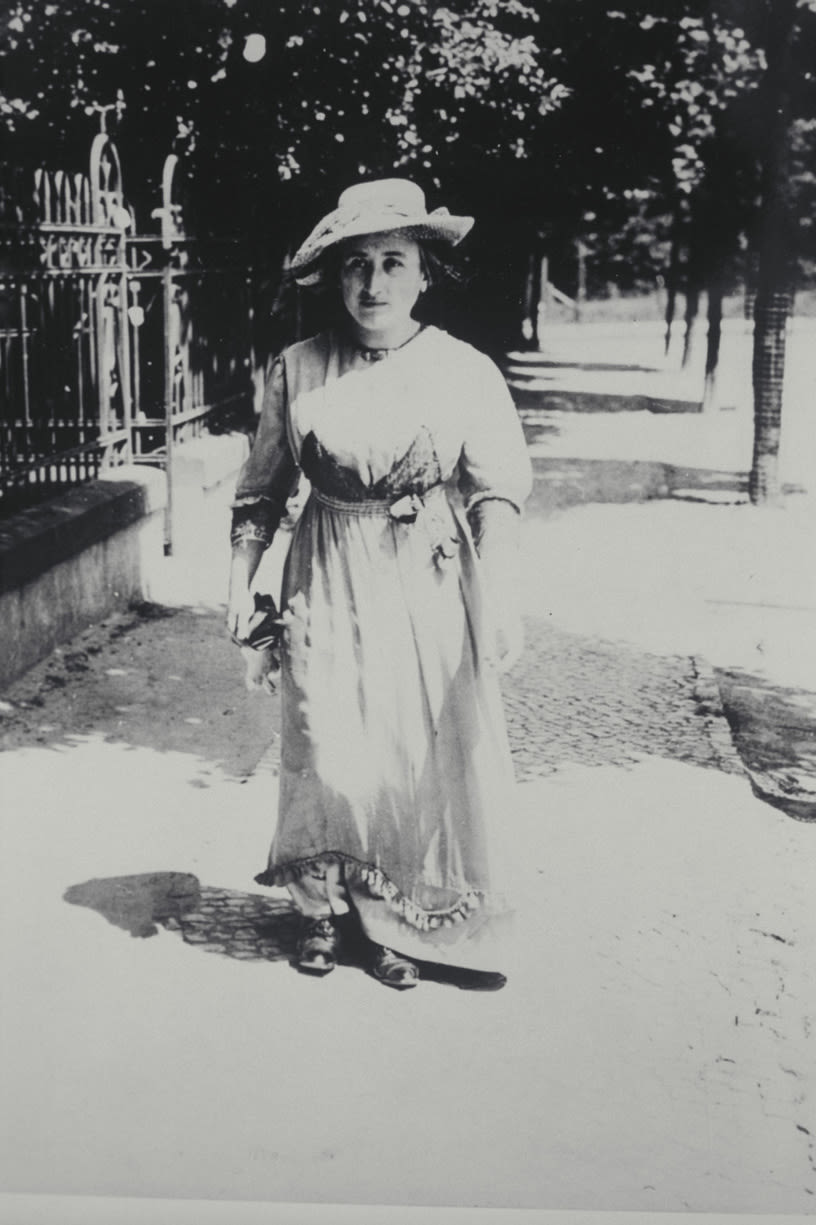Rosa Luxemburg: The Revolutionary Legacy of a Marxist Theorist and Activist
Introduction:
Rosa Luxemburg, born on March 5, 1871, in Zamosc, Poland, was a revolutionary Marxist thinker, activist, and leader. Her contributions to socialist theory, her fearless opposition to imperialism and war, and her unwavering commitment to social justice continue to inspire activists and intellectuals around the world. Despite facing persecution, imprisonment, and ultimately assassination, Luxemburg's legacy endures as a symbol of resistance against oppression and a champion of the oppressed. This essay explores the life, ideas, and enduring impact of Rosa Luxemburg.
Early Life and Intellectual Development:
Rosa Luxemburg was born into a Jewish family in Russian-occupied Poland, where she experienced firsthand the injustices of social and economic inequality. Her early exposure to poverty and discrimination fueled her commitment to social justice and radical politics. Luxemburg's intellectual curiosity and passion for justice led her to pursue studies in Zurich, Switzerland, where she became involved in the burgeoning socialist movement.
It was during her time in Zurich that Luxemburg began to develop her distinctive approach to Marxism, drawing on the works of Karl Marx and Friedrich Engels while also critiquing the dogmatism and opportunism of the Social Democratic Party (SPD) in Germany. Luxemburg's insights into capitalism, imperialism, and the dynamics of class struggle laid the groundwork for her later theoretical contributions and political activism.
Political Activism and Organizing Efforts:
Upon completing her studies, Rosa Luxemburg moved to Germany, where she became actively involved in socialist politics and trade union organizing. She joined the Social Democratic Party (SPD) and quickly established herself as a prominent leader and intellectual within the party. Luxemburg's fiery speeches, sharp wit, and uncompromising commitment to socialist principles made her a formidable figure on the political stage.
Luxemburg's activism extended beyond the confines of traditional party politics. She was a vocal critic of imperialism and militarism, particularly during the First World War, when she vehemently opposed the SPD's support for the German war effort. Luxemburg's anti-war stance led to her imprisonment in 1915, where she continued to write and organize resistance from behind bars.
Revolutionary Theory and Contributions:
One of Rosa Luxemburg's most significant contributions to Marxist theory was her analysis of imperialism and the global capitalist system. In her seminal work, "The Accumulation of Capital," Luxemburg argued that capitalism relies on constant expansion and the exploitation of non-capitalist economies to sustain itself. She identified imperialism as the highest stage of capitalism, characterized by monopolistic control, militarism, and the export of capital to colonial territories.
Luxemburg's theory of imperialism challenged prevailing orthodoxies within the socialist movement, particularly the belief that capitalism would inevitably collapse under the weight of its internal contradictions. Instead, she argued that capitalism's global reach and ability to absorb surplus value from non-capitalist sectors allowed it to perpetuate itself through imperialist expansion.
Another key aspect of Luxemburg's thought was her emphasis on the role of spontaneous mass action in the revolutionary process. Unlike some of her contemporaries who advocated for vanguard parties and centralized leadership, Luxemburg believed that genuine socialist transformation could only arise from the self-activity of the working class. She championed the idea of mass strikes, demonstrations, and grassroots organizing as essential tools for challenging capitalist power and building a socialist society.
Legacy and Impact:
Rosa Luxemburg's life was tr
Luxemburg's writings continue to be studied and debated by scholars, activists, and political theorists around the world. Her analysis of imperialism, her advocacy for mass action, and her unwavering commitment to socialist principles remain relevant in an era marked by global inequality, environmental degradation, and political upheaval.
Moreover, Rosa Luxemburg's life and example continue to inspire socialists and radicals to fight for a more just and equitable world. Her courage in the face of persecution, her integrity in the pursuit of truth, and her unwavering commitment to the cause of human liberation serve as a beacon of hope for all those who strive for a better future.
Rosa Luxemburg was more than a revolutionary theorist and activist; she was a tireless champion of the oppressed, a visionary thinker, and a martyr for the cause of socialism. Her life and legacy remind us that the struggle for justice and equality is long and arduous, but ultimately worth fighting for. As we commemorate her memory, let us renew our commitment to building a world free from exploitation, oppression, and injustice, in which all people can live with dignity and solidarity.
The impact of Rosa Luxemburg's ideas and activism extends far beyond her own lifetime. Her legacy has influenced various movements and continues to shape contemporary political thought and action. Here are some additional aspects to consider:
- Internationalism: Rosa Luxemburg's commitment to international solidarity and anti-imperialism remains relevant today. Her critique of capitalism as a global system that exploits and oppresses people across borders resonates with contemporary struggles against economic exploitation and neocolonialism. Luxemburg's emphasis on the interconnectedness of global struggles underscores the importance of international solidarity in the fight for social justice.
- Feminism: While Rosa Luxemburg's primary focus was on class struggle, her writings contain insights into gender dynamics and the intersections of capitalism and patriarchy. Although she did not develop a comprehensive feminist theory, her analysis of social relations and power dynamics laid the groundwork for later feminist interpretations of Marxism. Luxemburg's advocacy for women's rights and her rejection of patriarchal norms within socialist organizations paved the way for feminist contributions to socialist theory and practice.
- Environmentalism: Although Rosa Luxemburg did not directly address environmental issues in her writings, her critique of capitalist exploitation and her advocacy for sustainable development resonate with contemporary environmentalist movements. Luxemburg's analysis of capitalism's inherent drive for endless accumulation and its destructive impact on nature provides a framework for understanding the ecological crisis we face today. Her vision of a society based on democratic planning and collective ownership offers insights into alternative models of sustainable development.
- Anti-authoritarianism:
 Rosa Luxemburg's commitment to democratic socialism and her critique of authoritarian tendencies within the socialist movement continue to inspire anti-authoritarian and libertarian socialist currents today. Her warnings against the dangers of bureaucratism, centralization, and party dictatorship serve as a cautionary tale for those who seek to achieve socialism through top-down means. Luxemburg's vision of socialism as a participatory and decentralized system highlights the importance of democratic governance and grassroots empowerment.
Rosa Luxemburg's commitment to democratic socialism and her critique of authoritarian tendencies within the socialist movement continue to inspire anti-authoritarian and libertarian socialist currents today. Her warnings against the dangers of bureaucratism, centralization, and party dictatorship serve as a cautionary tale for those who seek to achieve socialism through top-down means. Luxemburg's vision of socialism as a participatory and decentralized system highlights the importance of democratic governance and grassroots empowerment. - Labor Movement: Rosa Luxemburg's advocacy for workers' rights and her support for trade union organizing have left a lasting impact on the labor movement. Her emphasis on class struggle as the primary motor of social change and her defense of workers' militancy against capitalist exploitation resonate with contemporary labor struggles. Luxemburg's call for solidarity and collective action remains relevant in the face of ongoing attacks on workers' rights and the rise of precarious labor conditions.
In conclusion, Rosa Luxemburg's legacy transcends time and borders, inspiring successive generations of activists, intellectuals, and social movements. Her contributions to Marxist theory, her fearless opposition to oppression, and her unwavering commitment to social justice continue to resonate with those who strive for a better world. As we reflect on her life and work, let us draw inspiration from her example and carry forward the struggle for liberation, equality, and human dignity.























![[ℕ𝕖𝕧𝕖𝕣] 𝕊𝕖𝕝𝕝 𝕐𝕠𝕦𝕣 𝔹𝕚𝕥𝕔𝕠𝕚𝕟 - And Now What.... Pray To The God Of Hopium?](https://cdn.bulbapp.io/frontend/images/79e7827b-c644-4853-b048-a9601a8a8da7/1)
































